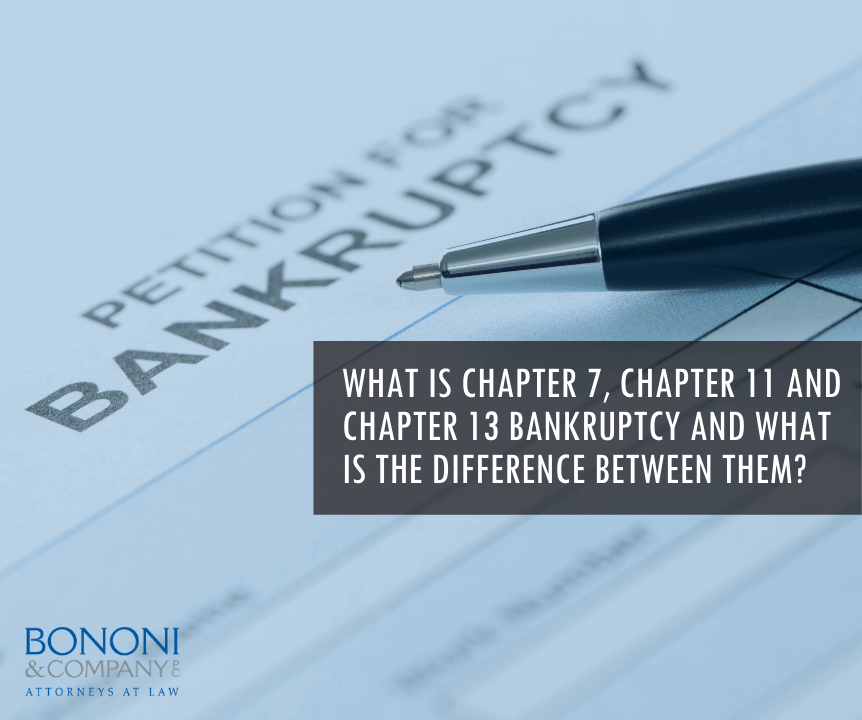
Chapter 7 bankruptcy is generally what people think of when they hear bankruptcy.
In Chapter 7 a debtor is able to discharge their unsecured debts without having to make payments on their debts. Unsecured debts are medical bills, credit cards, personal loans, and certain judgments. Chapter 7 generally allows you to keep your car and home as well. Chapter 7 requires a debtor to fit into a certain income bracket.
Our team can help you determine if you qualify.
Chapter 13 bankruptcy is a payment plan bankruptcy.
Chapter 13 allows a debtor to reorganize their finances. Chapter 13 can stop a foreclosure, help you catch up on taxes, or just get more favorable repayment terms on a loan. Chapter 13 differs from Chapter 7 in that the Court will approve a repayment plan that will last for 3 to 5 years. Chapter 13 is a great solution for individuals who may have too many assets or too high of income to qualify for Chapter 7 as it will still allow you to discharge unsecured debt in most situations.
Our team can review your income and assets to see what chapter of bankruptcy will help you the most.
Chapter 11 bankruptcy is mainly a bankruptcy for businesses.
Chapter 11 is much like Chapter 13. It allows a business instead of an individual to reorganize. The business can then renegotiate its loans to get favorable repayment terms. Chapter 11 helps a business to keep its doors open while stopping threats from creditors. Many considerations go into a business bankruptcy filing.
Make sure you have a dedicated team of attorneys and accountants on your side when deciding the best path out of debt for your business.
If you have any questions about the topic discussed in this article, or any bankruptcy law matter, please give us a call at Bononi & Company 724-972-4180
